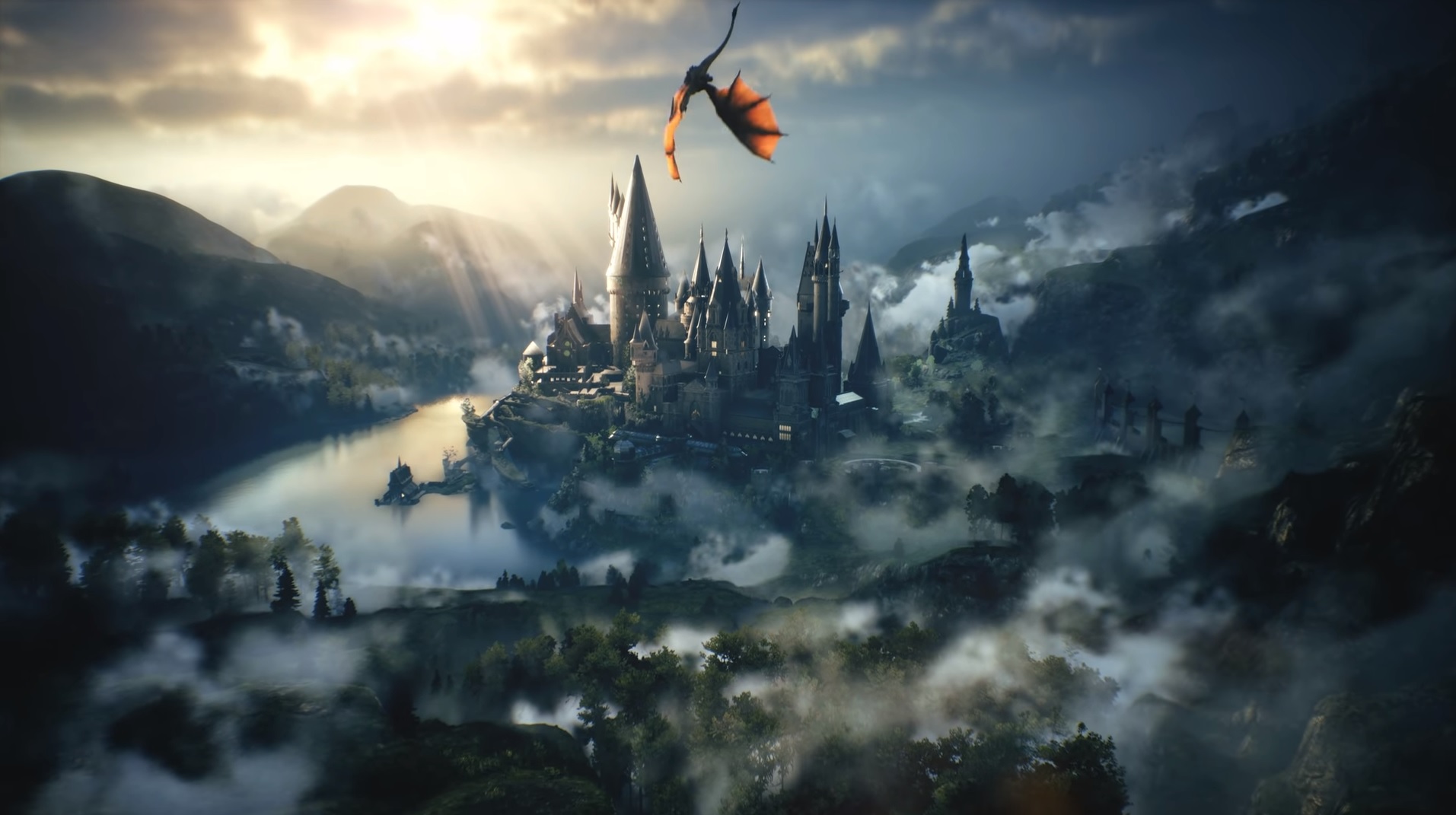Hogwarts Legacy sold over 22 million copies, Warner Bros. exec brags it's 'the best-selling game of the year in the entire industry worldwide'
Yer a cash cow 'Arry.

Warner Bros. Games has announced that the Harry Potter action-RPG Hogwarts Legacy sold over 22 million copies by the end of 2023, with roughly 2 million of those sales over the December festive period. "But it’s not just the units sold that I’m so proud of, it’s just that it delighted the fans so much," Warner Bros. Interactive Entertainment president David Haddad told Variety.
Haddad is positively gushing about the game. "It brought Harry Potter to life in a new way for gamers where they could be themselves in this world, in this story," says Haddad, "and I think that’s really why it resonated so well and remains the best-selling game of the year in the entire industry worldwide. That’s a position that typically is held by one of these incumbent’s sequel games and we’re so proud that we’ve been able to break into the top ranks."
The odd phrasing of "incumbent's sequel games" is referring to things like Call of Duty, GTA, Madden, NBA2K and so on: The latest entries in well-established series that have built huge fanbases over time. This does make Hogwarts Legacy an exceptional commercial performer: Even the critically acclaimed and top-selling Elden Ring didn't outsell that year's Call of Duty: Modern Warfare 2.
Warner Bros. shared a bunch of fun facts about the game, with Haddad emphasising "many" players have gone through the game multiple times. Collectively they've played for 707 million hours, brewed 819 million potions, harvested 1.3 billion magical plants, rescued 593 million magical beasts, and defeated 4.9 billion dark wizards.
But the only number that really counts is that sales figure, because it means Warner Bros. is now looking at Harry Potter with even more dollar signs in its eyes than before. It has already announced an upcoming game based around the wizarding sport of Quidditch, a little bit like rugby played on broomsticks, which is currently in beta.
"We don’t have any particular announcements on exactly how and when [Quidditch] is going to come to the market," says Haddad, "but we are working to get it designed in a way just to delight fans."
Then Haddad says there's "a series of other things" coming that will let players "be part of this world and stories and characters in deeper and deeper ways." There will almost certainly be a Hogwarts Legacy 2 at some point after this performance, though that would be a long way off, and it would be no surprise if the WB suits are currently running around green-lighting everything that has the word "Potter" on it.
The biggest gaming news, reviews and hardware deals
Keep up to date with the most important stories and the best deals, as picked by the PC Gamer team.
Haddad has a bunch more to say about franchises and people "consuming content", but this has been WB Games' direction of travel for some time now and, yes, it's driven by the idea of live service offerings. One potentially interesting thing Haddad says though is about "keeping live games launched with new content… and large launching new content." I'm not familiar with "large launching" but presumably he just means, like, a big launch campaign. WB Games has said previously there are no plans for DLC or expansions with Hogwarts Legacy, but those sales figures (and the length of time it will take to develop any sequel) must have the executives licking their chops at the possibilities.
PCG's review said Hogwarts Legacy is "Harry Potter's Arkham Asylum moment" and the best videogame this series has yet produced (admittedly most of the previous efforts were movie tie-ins, but still). Despite a big online fight over whether or not it was OK to play the game because of its links to Harry Potter creator J.K. Rowling, Hogwarts Legacy was generally well-received by critics and players, and currently sits with a Metacritic of 84 and an average user score of 8.5.

Rich is a games journalist with 15 years' experience, beginning his career on Edge magazine before working for a wide range of outlets, including Ars Technica, Eurogamer, GamesRadar+, Gamespot, the Guardian, IGN, the New Statesman, Polygon, and Vice. He was the editor of Kotaku UK, the UK arm of Kotaku, for three years before joining PC Gamer. He is the author of a Brief History of Video Games, a full history of the medium, which the Midwest Book Review described as "[a] must-read for serious minded game historians and curious video game connoisseurs alike."

